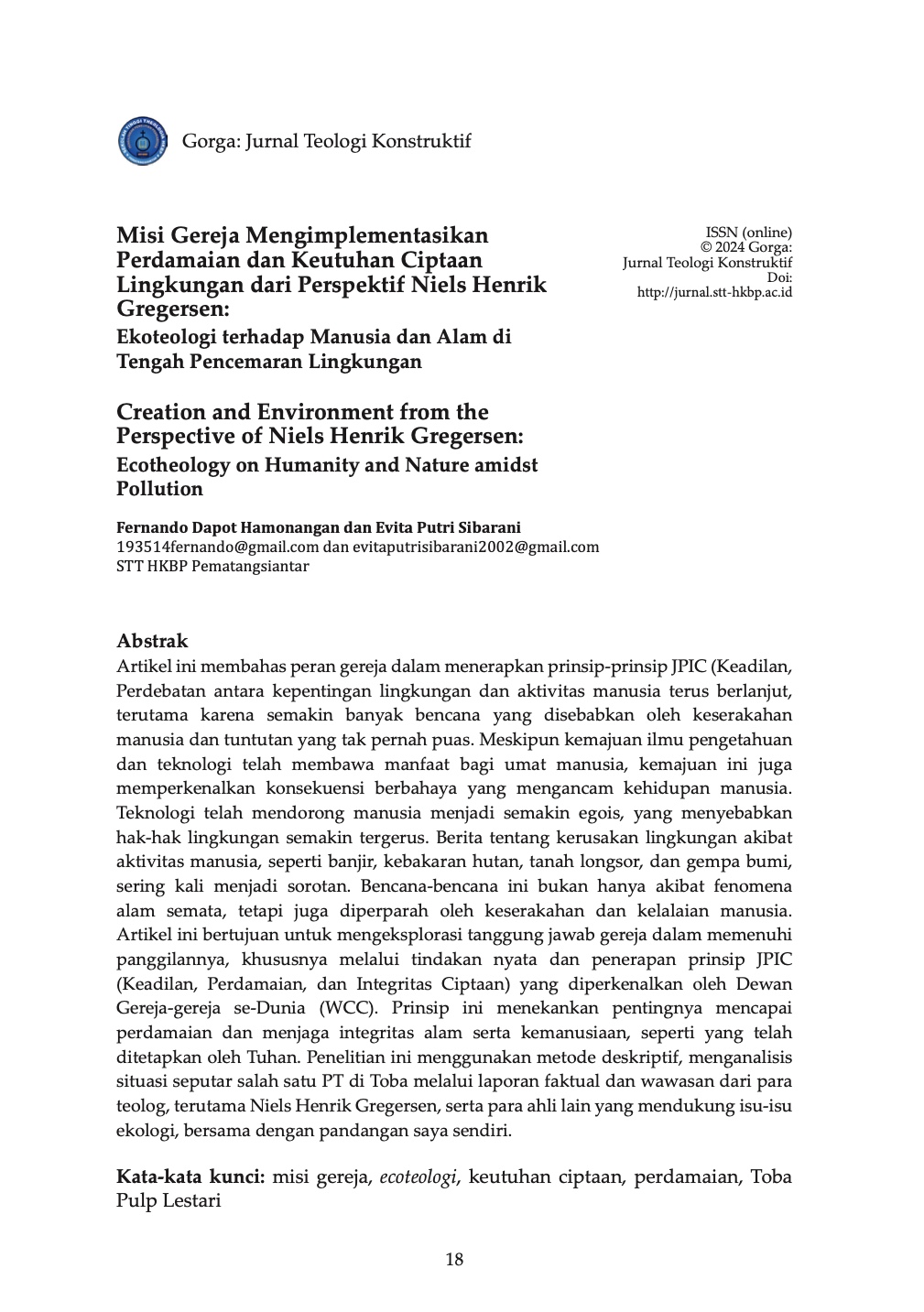Creation and Environment from the Perspective of Niels Henrik Gregersen
Ecotheology on Humanity and Nature amidst Pollution
DOI:
https://doi.org/10.62926/jct.v1i1.45Keywords:
church’s mission, ecotheology, peace, integrity of creation, Toba Pulp LestariAbstract
Debates persist between environmental concerns and human activities, particularly as the number of disasters caused by human greed and insatiable demands continues to rise. While advancements in science and technology have undoubtedly benefited humanity, they have also introduced harmful consequences that threaten human life. These technological advancements have fostered increasing selfishness in humans, leading to the gradual erosion of environmental rights. News reports frequently highlight environmental damage due to human activities, such as floods, forest fires, landslides, and earthquakes. These disasters are not solely the result of natural phenomena but are also exacerbated by human greed and negligence. This article explores the church's responsibility to fulfill its vocation, particularly through tangible actions and applying the JPIC (Justice, Peace, and Integrity of Creation) principle introduced by the World Council of Churches (WCC). This principle emphasizes the importance of achieving peace and preserving the integrity of nature and humanity, as ordained by God. The research employs a descriptive method, analyzing the situation surrounding a PT in Toba through factual reports and insights from theologians, particularly Niels Henrik Gregersen, as well as other experts who advocate for ecological issues, alongside the author's own perspectives.

Downloads
Published
Issue
Section
License
Copyright (c) 2024 Gorga: Journal of Constructive Theology

This work is licensed under a Creative Commons Attribution-NonCommercial 4.0 International License.
Dalihan Na Tolu: Journal of Constructive Theology reserves the copyright of all articles published in this online journal.



